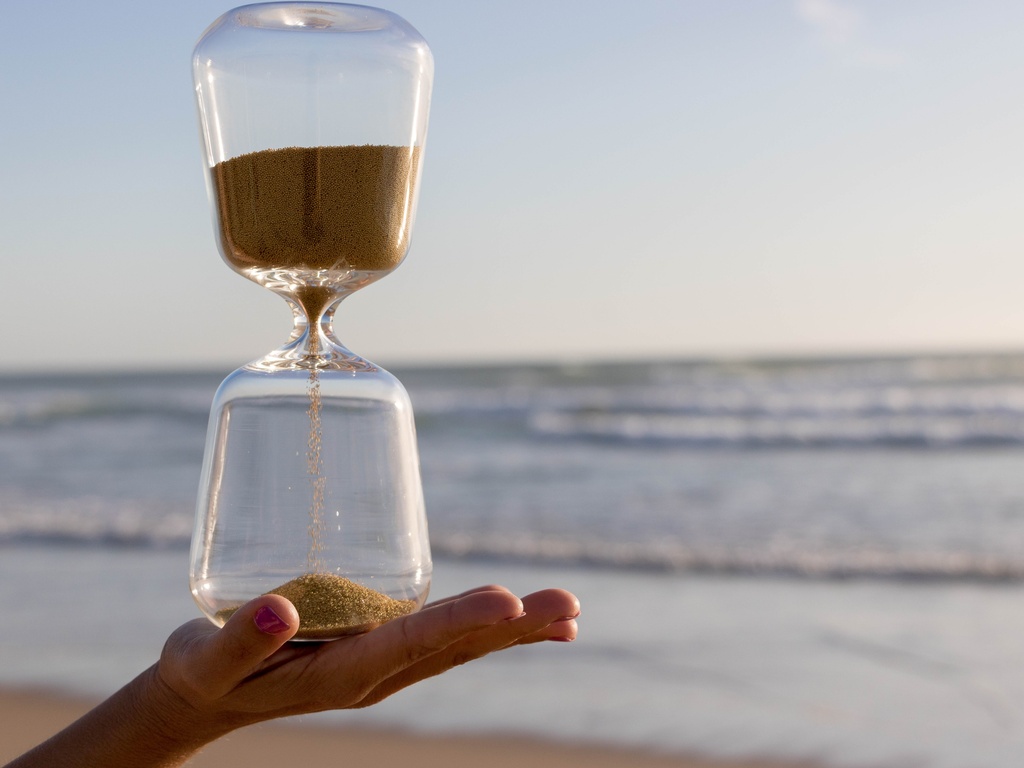Ahead of Schedule

Time for a Change
The saying “there are only 24 hours in a day” is a pretty good mantra for us to remember. There are ONLY 24 hours in one day, and there are usually more than 24 hours’ worth of things we want to accomplish in any given day. This leads us to the conclusion that we must choose carefully how we spend our time, because it is limited and precious. Business or pleasure, we can’t run ourselves ragged until we keel over in our efforts to live life to the fullest. We need to take back control of our schedules!
“Time isn’t the main thing. It’s the only thing.”
Miles Davis
Pressed for Time
You’ll know when you have an ineffective schedule. You’ll feel it. You get up early, spend hours putting in hard work to help your clients or patients, giving them all you’ve got, to be the best you can be at your chosen profession. You’re tired and just need to recharge. So you get home to your life outside of work - a family, friends, pets, hobbies, personal and mental health time. But, when you don’t have an effective schedule, even the times you’re counting on to rejuvenate you will leave you feeling no better than when you started. You feel like your schedule is the one in charge and calling the shots. There goes your sense of control! This often leads to procrastination, being late, disappointment, cramming things in last minute and then… the mounting stress. We all know stress is never good for the mind or body. Stress takes its toll on our blood pressure, our energy levels, our mental clarity, and our ability to regulate our emotions. When we don’t take care to plan a good schedule, we lose sight of our goals and start prioritizing little fires instead of what’s important to us.
This is why it’s so important to use some of your precious time to create a schedule that works for you. This could mean setting up daily routines for morning, afternoon and evening hours. (Don’t forget to include self-care!). Maybe you prefer a weekly planner, a wall calendar, or a phone app. However you choose to plan, and even if you already have daily or weekly scheduling down to a fine art, consider making some monthly plans. It will do you good to have something to look forward to or to take note of progress you’ve made on certain projects - both of these are great motivators. So we’ve gathered some tips on how to improve your scheduling, so you can take back control and reduce the stress in your day-to-day.
Time Out
Now this one sounds obvious - but don’t ignore it. Schedule a time to schedule your time. Part of being on top of things with your time management, is that you need to schedule a time to plan the upcoming day, week or month. If you have a schedule with good bones, you can function on auto-pilot to some extent, but things are constantly changing and outside of our control: baby showers, birthday parties, sporting events, school events, sickness, concerts, etc. You will need to re-evaluate regularly to compensate for all these changes, including the fluctuations and needs of your emotional well-being. Take a break before you NEED a break! And yes, be as specific as you can when you’re putting your “schedule time” into your schedule. “On Tuesdays, in my car/office, for the 2nd half of my lunch hour.”
Another tip that can be useful is to physically write down (or type up) your priorities. You probably have a list of goals, which is what you aim to achieve and helps motivate you. But your priorities in life will determine HOW you spend your time working toward your goals. Is your health a priority over your hobbies? Is your family a priority over your career? Does the amount of time, energy and thought that you devote to these things reflect their priority level? Even though you may have goals in certain areas, your priorities are what guide you into a happier and more fulfilling life, because you’re making sure to spend time on what matter most to you.
The last tip, which is sometimes a hard one to put into practice, is saying no. It’s okay to say no! If you’ve spent time and thought creating a schedule for your life where there is a time for everything that is important to you, it’s okay to say no when things come up to mess with that. Now, as we’ve talked about before, things will come up, and you may want to make exceptions. But there should be no compulsion to say yes to everything that presents itself. Having a list of priorities will keep you from lacking clarity and give you the confidence you need to make split second decisions as they come.
This Time Will Be Different
Free time. Free time needs to be just that - free! Don’t schedule free time and then fill it up with a list of to-do’s, so you can cram in as much as you can. That’s not what free time is for! Once you’ve carefully managed your time so that everything has its place, then your free time should be a time to truly recharge and be refreshed.
If you search the internet for ideas to maximize your free time, you will find a plethora of useful (and some absurd) suggestions. Let’s use the time that you’re spending reading this article to get right to the good stuff, so you don’t have to do your own searching!
To begin with, free time is a great way to practice being “in the moment.” These days, we are very connected online through varying devices and platforms that are at the tips of our fingers all day long. If you are able to unplug during free time and truly practice being in the moment, it will not only decrease your stress levels, but will also increase the depth of connection you have to the people you are spending the time with. Having more meaningful relationships is widely found to increase one’s happiness, peace, and fulfillment in life. It is hard to be in the moment with someone when you are constantly looking at a screen, or scrolling through your newsfeeds. Instead, practice noticing the sights, sounds, smells around you for a minute. Get into your present moment, and then ask yourself: how do you want to feel as a result of this down time? Is it working? If not, do something else! The point is to leave your free time feeling different, better, happier than the way you went into it. Another way to accomplish that is by doing something that you do NOT do during work hours. If you sit in a chair all day - get moving! If you stare at a computer all week - don’t! If you’re on the phone all the time - leave it on the charger! Shake up those routines or you won’t feel like you’ve had any sort of break.
If you find yourself using your free time for projects you just can’t avoid, try to remind yourself of the meaning behind the projects in the first place. Chances are it started off as something important to you. Maybe you are painting a room because you’re in need of a nursery in the near future. Very exciting! But the act of painting a room may bring to mind paint fumes, messy drop cloths, and sore backs. Instead, remind yourself of all the beautiful things that will happen within those freshly painted walls and let your mind wander, even if your body physically can’t. Sometimes a mental break is just as helpful as a physical break.
Using your free time wisely will bring many benefits. So make sure when you’re scheduling some time to escape (whether physically, mentally, or both), that you keep in mind that free time is not the time to cram in everything else you couldn’t make time for.
Not sure where to begin? Take out your calendar or open your phone app right now. When is the first available time you can sit down and work on your time management? Write it down and commit. It’s a process, but you have to start somewhere. Happy planning!
**Additional Resources
What is time management? Top tools from Tony Robbins
How To Curate Your Schedule For Optimal Productivity (forbes.com)
6 Time Management Training Methods | Indeed.com
Weekend Wisdom: Ideas for Maximizing Your Free Time | Apartment Therapy
12 Tips to Improve the Quality of Your Free Time - Lifehack
How to spend your leisure time to be more successful, happier in life (cnbc.com)

